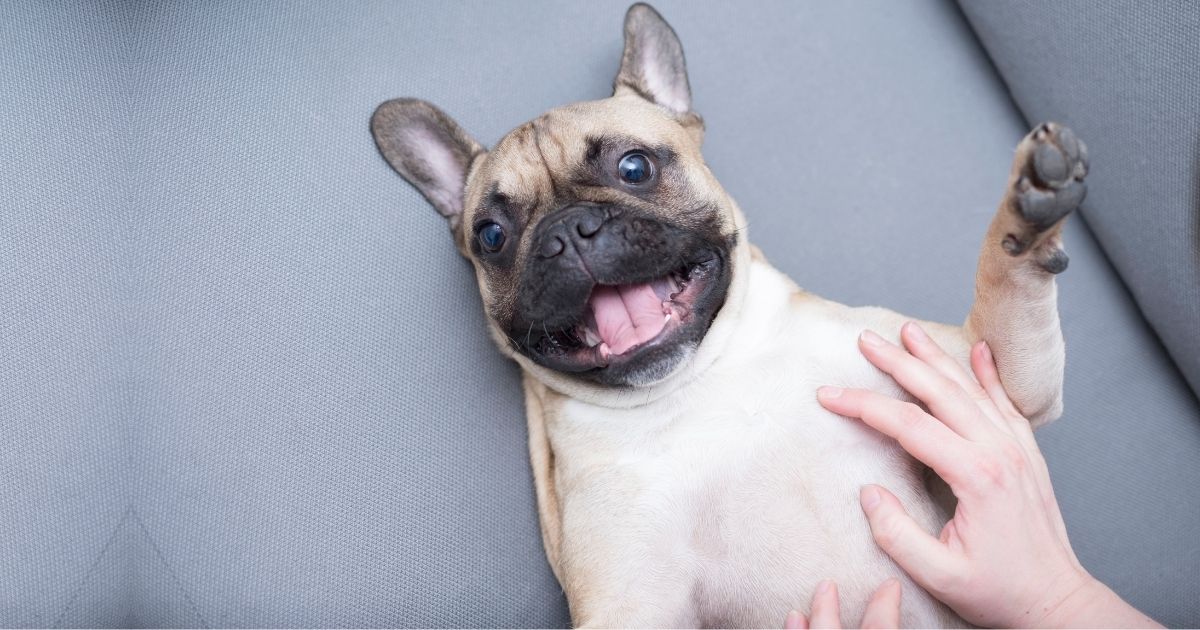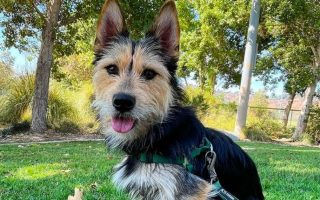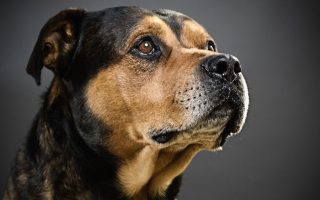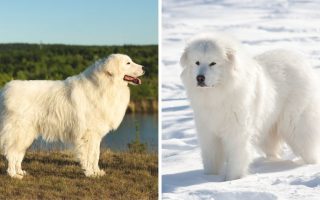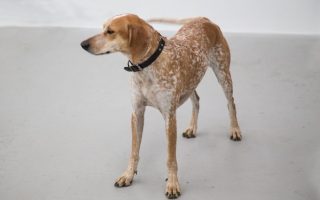Humans are allergic to many things—food, flowers, drugs, and even pets like cats and dogs.
Unfortunately, it doesn’t matter what your preferences are. Once you are prone to pet allergies, it would be hard for you to own a pet, unless it is hypoallergenic.
What makes it harder is that you may not know if the dog breed you love can be harmful to you. Amongst these lovable dog breeds, the French Bulldog is one.
The Frenchie is 2nd on the list of American Kennel Club’s most popular dog breeds, and many can attest to how loving it can be.
As someone prone to allergies, you might be thinking of getting a French Bulldog but you’re not sure if you can own one.
Hence, it is only fair if you’re asking “are French Bulldogs hypoallergenic?”
In this guide, we’ll explain the concept of dogs being hypoallergenic, then explore the possibilities of the French Bulldog being under this category.
What Exactly Does Hypoallergenic Dog Mean?
Studies have shown that 10% of the American populace is allergic to dogs. This percentage may not reduce anytime soon as more allergic cases pop up.
Should these people be condemned to not getting a dog? Not really, especially for those who are enthusiasts.
That’s why researchers have worked to figure out which dog breeds are hypoallergenic.
Simply put, when someone, an animal, or object is hypoallergenic, it means the chances of them triggering an allergic reaction are low.
The situation is a bit complex for dog lovers as there are many things on a dog’s body that can trigger allergies.
Usually, when experts talk about hypoallergenic dogs, they focus on those that don’t shed heavily.
However, dander and saliva can also cause an allergic reaction. This means that no dog is completely hypoallergenic.
Nevertheless, some dogs pose fewer threats to allergy sufferers.
These are the dogs termed hypoallergenic and are more suitable if you or any member of your family is prone to allergies.
Are French Bulldogs Hypoallergenic?
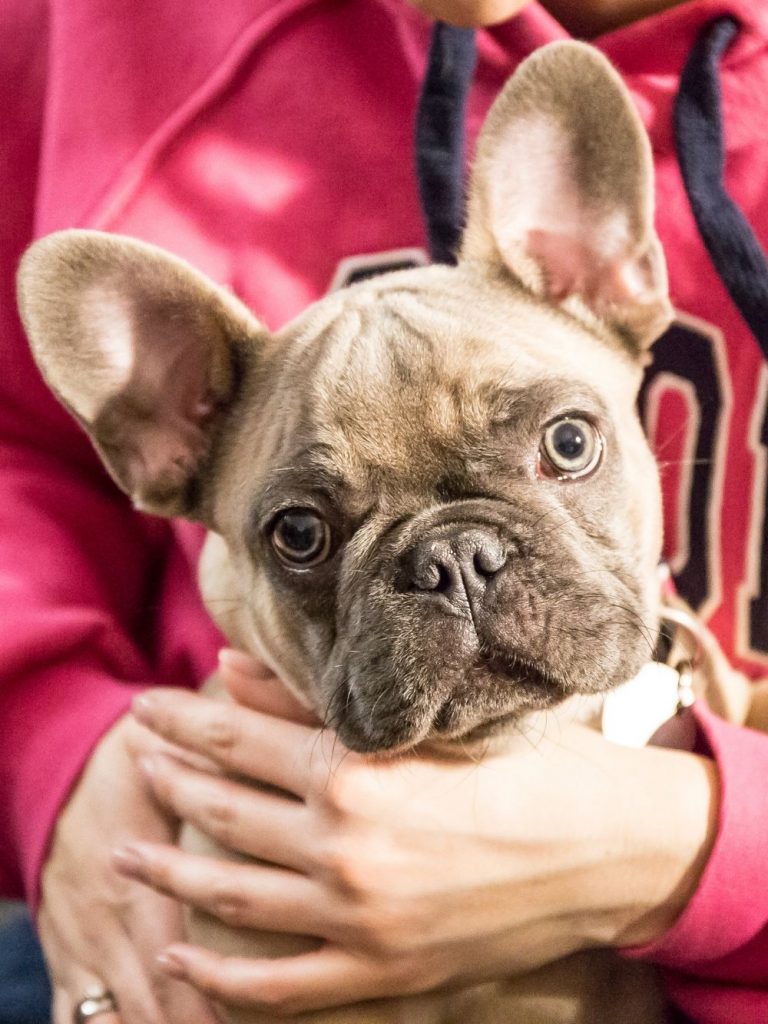
Can we add French Bulldogs to the list of dogs good for allergy sufferers?
The short answer is “No, French Bulldogs are not hypoallergenic.”
These dogs do seem like they can pose no threat for allergy sufferers, but in reality, they are known to trigger some serious effects, especially for those who are sensitive to it.
This is a bummer if you love French Bulldogs and see one as your ideal pet, but we know that health comes first.
It would be risky for you to get a Frenchie if you know you can’t handle being around one.
It won’t also be fair on the little Frenchie pup as these dogs love attention and would want to be around you all the time.
Why are French Bulldogs Bad For Allergy Sufferers?
In case you are not convinced by a straight answer, here are compelling reasons why French Bulldogs are not hypoallergenic:
1. Frenchies have shedding seasons
Though they have short hairs, French Bulldogs shed moderately throughout the year.
What’s more, they have seasons when they shed heavily. This usually happens during spring and fall and it can be a nightmare for someone prone to allergies.
2. They drool a lot
Besides shedding, French Bulldogs also drool. Not only can this be discomforting for someone who’s nitpicky, but drool is also a strong allergen.
3. They produce dander
Dander refers to skin flakes that come on the skin of dogs, cats, and many other animals that have fur.
This dander sticks on the short hair of French Bulldogs, and can easily come into contact with you when your Frenchie comes looking for attention.
I am Allergic, and I Want a Frenchie – What Can I Do?
While we do not advise any allergy sufferer to get a French Bulldog, we understand that it might be difficult to let go of getting this dog breed once your mind is set on it.
So, if you can’t resist owning one, at least take these measures we’ll recommend to keep yourself safe.
While the allergic reactions don’t kill, they can be uncomfortable and painful. You should know whether it’s worth it before you get one.
Here are some useful tips to manage your allergies around a French Bulldog:
#1. Groom your dog regularly
Regular grooming would help remove dander and dead hair off your dog’s coat, thus reducing the chances of a high allergic reaction.
A bristle brush is the best tool for the job. You can hire a professional, or do it yourself with proper covering.
Wear a face mask and gloves to prevent contact with dander and hair.
#2. Feed your French Bulldog high-quality food
A high-quality diet is essential for any dog breed, and it can play a big purpose here as well.
Feeding your French Bulldog with enough vitamins can reduce shedding.
Ensure you consult with a veterinarian to know the right meal you can feed a French Bulldog before you proceed.
#3. Practice good hygiene
You’ll be more at risk of suffering from an allergic reaction if there are dead hairs, drools, and urine all over the place.
Vacuum regularly and wash every surface or clothing your French Bulldog comes on.
#4. Don’t let them get on your furniture and bed
If possible, stop your French Bulldog from climbing on your sofas and couches. It should also have its sleeping corner, rather than joining you on your bed.
#5. Clothe your French Bulldog
This tip can help you touch and pet your French Bulldog without fear of it triggering any reaction.
Find a good cloth that is hypoallergenic and put it on your pooch. This would help reduce the chances of dander touching you.
#6. Stay around a French Bulldog before you decide
Every tip we’ve mentioned can still be futile if you’re extremely sensitive to the French Bulldog.
Allergies vary, and some are milder than others. You should know where you fall and if it is worth trying.
If you have a friend who owns a French Bulldog, visit them and see how you react. You can also volunteer to dog sit a Frenchie and gauge the experience.
Are there Hypoallergenic French Bulldog Mixes?
Another option is to look for a French Bulldog mix that you can cope with
There is no guarantee that you would find one, but you can try your luck with mixed breeds that have as a parent a hypoallergenic dog.
One example of such a designer breed is the Froodle, a cross between the French Bulldog and Poodle. The latter is known to be hypoallergenic as it hardly sheds.
The French Bull Tzu is a second instance. It crosses the French Bulldog and Shih Tzu, a hypoallergenic dog breed.
Like the purebred Frenchie, make sure you can cope with your preferred mixed breed before you make any payments for it.
Which dogs are Hypoallergenic?
It might be that, despite your intentions, you realize that the French Bulldog isn’t suitable for you.
If so, do not despair, here’s a shortlist of Hypoallergenic dogs. Many of these are just as friendly as the French Bulldog, with less drool!
- Poodle: The Poodle is one of the most popular dog breeds, and also one of the oldest. It is known for the stylish haircut and dignified attitude.
Poodles are also low shedders that don’t drool and hardly produce any dander. These make them perfect for allergic people.
- Shih Tzu: The Shih Tzu is another lovable companion, just like the French Bulldog. It loves being a lapdog and is affectionate towards its owners, traits that are similar to the Frenchie.
What’s cooler about the Shih Tzu is that it hardly sheds and doesn’t drool.
- Maltipoo (a designer breed): If you’re into designer breeds, the Maltipoo is perfect for you. It is a cross between the Maltese and the Poodle and serves as a valuable companion.
Even more, it was designed to be pets for allergy sufferers. Really, what more do you need?
- Samoyed: The Samoyed is bigger than the aforementioned dog breeds and isn’t your typical lapdog, but it has been a companion from history.
They are recommended for allergy sufferers, but caution must be taken during shedding season. Very sensitive allergy sufferers may still have problems with the Samoyed.
- Italian Greyhound: Not to be confused with the Greyhound (it is a miniature version).
It is a lovely, alert and affectionate companion that sheds little, a quality that keeps allergic people safe around them.
- Labradoodle (also a designer breed): The Labradoodle is a cross between the Poodle and the highly famous Labrador Retriever.
It gets the best trait from both sides and is easy to train. It also is hypoallergenic because of its Poodle parent (the Labrador isn’t hypoallergenic).
Commonly Asked Questions
How bad are French Bulldogs for allergies?
French Bulldogs are not hypoallergenic. They produce different allergens that could trigger strong allergic reactions on any dog.
Are French Bulldogs shedders?
French Bulldogs have a short coat, but they shed moderately and have heavy shedding seasons in a year.
Are any Bulldogs hypoallergenic?
Bulldogs have a lot of good family qualities that make them good for households. However, they are not hypoallergenic, mainly because they drool a lot.
Are French Bulldogs high maintenance?
The French Bulldog is, overall, a high-maintenance breed. Not only does it shed, but it can also cost you a lot for medical treatments as it is prone to some illnesses.
Closing Thoughts
For someone predisposed to dog allergies, the choice of dog breeds is limited.
Dog lovers often have one breed they are fond of, but health factors should be a major determinant.
Unfortunately, French Bulldogs are not recommended for allergy sufferers. Their shedding habits, dander, and drool might be too much for an allergic person to handle.
That said, if you’re not too sensitive to French Bulldogs, you can make it work by taking measures to reduce the risk of an allergic reaction.
Otherwise, you should go for a hypoallergenic dog breed.
There are many you can choose from, and you may not feel like you missed out on anything once you know how to take care of your pet dog.

